- Home
- Linwood Barclay
Elevator Pitch Page 6
Elevator Pitch Read online
Page 6
Chris nodded, waiting.
Headley’s face went dark. “I’m worried about a couple of things.”
“Yes, sir?”
“The first is … Glover.”
“He’s eager to please you. He means well. He wants your approval, sir.”
“Yeah, well, that may be. But his instincts … just let me know if you see him doing something particularly stupid, would you?”
“Of course. And the other thing?”
“Barbara.”
Chris nodded slowly.
“Let’s face it. She’s good at what she does. People feed her stuff. She has good sources. Some working right here at City Hall, people who’ve not been loyal to me. She’s a pit bull. If she bites down on your leg you’ve as good as lost it.”
“I understand your frustration,” Chris said.
“If there were some way to get her off my back, some way to neutralize her …”
Chris was silent for a moment. Finally, he said, “I’m not quite sure what you’re talking about here, sir.”
Headley looked at him, puzzled at first, then horrified. “Christ, you didn’t think I meant …”
Chris gave him a blank stare. “Of course not.”
“Jesus, no.” He shook his head. “No, I’m thinking more … about those skeletons in the closet. If there were a way to discredit her somehow.” The mayor put a hand to the back of his neck and tried to squeeze out the tension, like he was wringing a sponge dry.
“Let me nose around,” Chris said.
“Good, that’s good,” the mayor said. “You had me worried there for a minute.”
Chris Vallins tilted his head to one side, as if to say, Yes?
“That you might have thought, even for a second, that I was suggesting we push the woman out a window or something.”
“Forgive me,” Chris said. “I know you’d never hurt a soul.”
Seven
Jerry Bourque’s first stop on the way home had been an art supplies place down on Canal Street. Then he’d gone into a grocery store with hot table service and filled a container with a few steamed vegetables, lasagna, a dollop of mashed potatoes, two chicken fingers, and some shrimp chow mein. The fact that some of these items did not typically go together did not bother Bourque. They charged by the weight of the container, so you could throw in a bit of whatever you liked.
As he came through the door of his fifth-floor, two-bedroom apartment in the Lower East Side, he tossed his keys in a bowl on a table in the hall, then went into the kitchen. He took his phone from his jacket pocket and set it, and his food, on the counter. He placed the bag from the art store on the already cluttered kitchen table. He slid out ten sheets of white illustration board, each twenty by thirty inches. He stacked them neatly at one end of the table by several small, screw-top bottles of art paint, a selection of box cutter–type knives, a metal ruler, some brushes and pencils, several three-foot-long strips of balsa wood, a glue gun, and a large, eighteen-inch-square paper cutter with an arm strong enough to slice through the art board. Or his fingers, if he wasn’t careful.
Fingers.
He tossed his sport jacket and the book filled with photos of old New York onto his bed in the bedroom. The other book, about the nearly completed Manhattan skyscraper, he set on the kitchen counter. He took his dinner out of a bag, opened the lid of the rigid cardboard container, and took a fork out of the cutlery drawer. He picked up a remote to turn on a small television that hung from the underside of the cabinetry.
He went through the stations until he landed on a local newscast, took a bottle of beer from the fridge, then leaned up against the counter and ate his dinner while standing. There’d been a truck rollover on the Van Wyck, spilling a load of bananas across two lanes. Four were dead in an elevator accident. The mayor was fighting allegations of giving a big city contract to a friend.
“So what else is new,” Bourque said, his mouth full of chow mein.
Some nut set off a bomb in Boston. England was still being battered by high winds.
Bourque finished his meal, put the food-stained container into a garbage bin under the sink and his fork into the dishwasher, next to three other forks, the only other items in the appliance. He took five minutes and looked at the pictures in the skyscraper book.
“Wow,” he said to himself several times.
Then he went into his bedroom to take off his tie and dress shirt and suit pants. He tossed the shirt into a bag that would be dropped off at the dry cleaner at week’s end. The pants he lay carefully on the bed, then took a gripper hanger from the closet, clamped it to the cuffs, and hung them up. He stripped off his socks and tossed them in a laundry basket. Come Sunday morning, he’d fill his pocket with quarters, head to the basement laundry room, and do a wash.
Now, dressed only in boxers and a T-shirt, he went back into the kitchen and sat at the table. Next to the paints was a twelve-inch metal ruler, which Bourque used to draw several long, straight lines on the cardboard sheets, then several small boxes in a grid formation.
Standing, he sliced off some of the cardboard sheets with the oversized paper cutter, then with the box cutter lightly scored the art board along some of the pencil lines, allowing him to bend the cardboard to a right angle without separating the pieces. Sitting back down, he cut some strips of the balsa wood to match the length of the scored lines, applied some hot, drippy adhesive from the glue gun, and used them to brace the corners. The tip of his index finger touched some of the hot glue.
“Shit!” he said. He peeled the set glue off and sucked briefly on the finger.
He spent the next hour making three rectangular boxes of different sizes, painting them various shades of gray, then detailing the perfectly arranged boxes on the sides, making them look like windows. At the bottom edge, he drew detailed entrances and oversized windows. He did all of this without drawings or plans or blueprints of any kind. What he saw in his head he turned into three dimensions.
One of the purposes of this exercise, beyond the fact that he just liked doing it, was to push out of his head the events of the day. Some evenings it worked, some evenings it did not.
This was one of those nights when it did not.
Bourque’s mind kept coming back to the body with the smashed-in face on the High Line. After his appointment with Bert, he and Delgado had paid a visit to the coroner’s office. The naked body, minus fingertips, yielded at least one clue that might lead to an identification. On the dead man’s right shoulder was a two-inch-long tattoo of a coiled cobra.
A DNA sample had been taken. A search of his clothes yielded nothing helpful. No credit card or time-stamped gas bar receipts had been found in the dead man’s pockets. His jeans and top were cheap off-the-rack items from Old Navy.
Bourque had taken another look at the socks. They looked relatively new; the area around the big toes did not show signs of an imminent hole. And the corpse’s toenails had been due for a trim. Bourque had heard back from the bookstore and been told the shark socks were made somewhere overseas, sold online and in countless stores across the city, but if he still cared, they had sold twelve pairs in the last month. Six were put on credit, six were paid for with cash. Bourque took down the credit card information.
His one pleasant memory of the visit to the coroner’s office had been standing close enough to Delgado to smell her hair. Whatever shampoo she used had a scent—mango?—that was strong enough to overrule the lab’s stench of bleach and antiseptic.
Bourque forced the investigation from the front of his mind as he held out at arm’s length the first completed building of the evening. He turned it around and admired it. If he noticed a spot where the paint was thin, he gave it a touch-up.
“Okay,” he said to himself. “Installation time.”
He got up from the kitchen table and opened the door to the second bedroom. But there was no bed, or dresser, or even a chair. There were four metal card tables, arranged into a large square roughly six by six feet, a
nd almost entirely covered in boxes similar to the ones Bourque had just made. They were arranged in a grid, with space between to replicate streets.
Bourque placed that evening’s effort onto one of the tables. He moved some of the existing ones to make way for the new one. He viewed his work from various angles. Some of the boxes soared as tall as four feet, others only a foot or so. Many were recognizable. There were crude interpretations of the Chrysler Building, the Empire State Building, the Flatiron Building, 30 Rockefeller Plaza, the Waldorf Astoria Hotel.
The model city was in no way exact. The landmark structures he was re-creating were, in his version, within steps of each other, rather than scattered across the city. This was more an appreciation of the city, not a replica.
Bourque leaned up against one wall and crossed his arms, admiring his handiwork. At first, his gaze took in the project as a whole, but then his focus narrowed on one spot near the edge.
He stepped away from the wall, knelt down so that his eye was at the model’s street level. He studied the street in front of his recreation of the Waldorf Astoria.
His airway began to constrict.
If only I hadn’t moved. If only I hadn’t dived out of the way.
The drops.
He breathed in, then out, heard the wheeze.
He wasn’t expecting it to happen now. Here, at home, working on his project. Away from people with bashed-in faces and missing fingertips. But then he had to look at the sidewalk in front of the Waldorf Astoria.
Bourque immediately thought of grabbing the inhaler from his sport jacket in the other room, but then remembered what his doctor had suggested.
“Okay, Bert, we’ll give it a try.” He closed his eyes and concentrated.
Find a category.
Got it. The city’s tallest structures, starting with the highest.
Aloud, he said, “One World Trade Center. Top of the Park. 432 Park Avenue. 30 Hudson Yards. Empire State Building.” He stopped himself.
Could he include Top of the Park? The luxury apartment building on Central Park North, the subject of his new book, didn’t officially open until later this week. Erected between Malcolm X Boulevard, otherwise known as Lenox Avenue, and Adam Clayton Powell Jr. Boulevard, or Seventh Avenue, the building came in at ninety-eight stories, making it two floors taller than the astonishing, and relatively recent, 432 Park Avenue, which towered over Central Park looking like some monolithic, vertical heat grate.
Did it really matter for the purposes of this exercise? He was still wheezing. He continued with his list.
“Uh, Bank of America Tower. 3 World Trade Center, uh, 53 West Fifty-Third. New York Times. No, wait. Chrysler Building, then the New York Times Building.”
The tightening in his chest was not easing off.
“Fuck it,” he said.
He went into the other bedroom, picked up his jacket, and reached into the left inside pocket.
The inhaler was not there.
“What the …”
He always tucked it into the left pocket. But maybe, just once …
The inhaler was not in the right pocket, either. Nor was it in either of the outside pockets.
Bourque felt his lungs struggling harder for air. The wheezing became more pronounced.
“Shit, shit, shit,” he whispered.
Had he taken the inhaler out of his jacket when he first got home? He went back to the kitchen to check. It wasn’t on the kitchen table or on the counter by the sink. Bourque returned to the bedroom, wondering if the inhaler had slipped out of his coat when he had thrown it onto the bed.
He got down on his hands and knees, patting beneath the bed where he could not see.
“Come on,” he wheezed.
He found nothing.
In his head, he had an image of a snake coiling itself around his windpipe. Like that cobra tattoo on the deceased.
It was becoming increasingly difficult to breathe. If he didn’t find his inhaler soon, he was going to have to use his last breaths talking to a 911 operator.
And that would be if he could find his phone. Where the hell had he left his phone? He hadn’t noticed it in his jacket pockets as he searched for the inhaler. Had he left it in the kitchen?
He started to stand, and as his eyes were level with the top of the bed, he spotted something. Something small and dark, just under the edge of the pillow.
He grabbed the inhaler, uncapped it. He exhaled, weakly, then put the device into his mouth and, at the moment he squeezed it, drew in a breath. Held it for ten seconds. He breathed out, then prepared for a second hit.
He wrapped his mouth around the inhaler again. Squeezed. Started counting.
His cell phone rang. Out in the kitchen. He got to his feet, had the phone in his hand by the time he’d counted to four.
The name DELGADO came up on the screen. Lois Delgado.
Five, six, seven …
Delgado had not given up on him yet. Bourque had his finger ready to take the call.
Eight, nine, ten.
Bourque exhaled, tapped the screen. “Yeah, hey,” he said, holding the phone with one hand and gripping the inhaler with the other.
“It’s me,” Delgado said. “You okay? Can barely hear you.”
He got some more air into his lungs. “I’m fine.”
“Okay. Anyway, sorry to call so late.”
“It’s okay. What’s up?”
“I’ve got a tip for you.”
He sighed mentally. “Go ahead. I’m all about self-improvement.”
“Not that kind. A fingertip. Our guy dropped one.”
Eight
Bucky had heard about the Boston bombing even before he saw the item on TV that night from his cheap hotel room. Mr. Clement had filled him in, and he sounded less than impressed when they had spoken late that afternoon about how that event had gone down.
Four injured, one seriously.
“It’s a wonder it even made the news,” Mr. Clement said when they had their brief meeting, standing almost shoulder to shoulder, feigning interest at the Central Park Zoo’s penguin exhibit. They spoke softly, careful not to turn and face each other during their chat, as the penguins swam and splashed and waddled.
Mr. Clement made it clear he was not blaming Bucky for how unspectacular the Boston event turned out to be. Bucky had not been assigned to that one. Bucky didn’t know who Clement had trusted to do Boston, but he was betting whoever it was, he wouldn’t be doing any Flyovers missions in the future.
Bucky, however, was in the old man’s good books. Bucky’d engineered the Seattle coffee shop bombing the week before, which left two dead. That made headlines, to be sure.
“New York’s special,” Mr. Clement had said. “That’s why we have to be more ambitious here, Bucky. Not some simple coffee shop bombing.”
“I hear ya,” Bucky said.
His real name was Garnet—last name Wooler—but he’d gotten the nickname Bucky when he was a kid, before his parents managed to scrape up enough money to have him fitted with braces. But the name stuck, and just as well, because as names went, Garnet was no great shakes, either. These days, if anybody asked, he told them he was named after Captain America’s sidekick, Bucky Barnes. There were those who thought the name made him sound stupid, like some country hick. But if he were some dumb rube, Mr. Clement wouldn’t have been putting so much faith in him. That was for sure.
Bucky liked the man, and even though Bucky was now in his late thirties, he looked up to Mr. Clement, who was pushing seventy, as a father figure. Bucky had lost his own dad when he was seventeen, and he missed having someone older and wiser—and male—to mentor him, guide him. Mr. Clement, to a degree, had filled that role.
“We’ll talk again tomorrow,” Mr. Clement said. “A progress report.”
“Sure thing,” Bucky said. “Are you having a nice time?”
Without nodding, Mr. Clement said, “We are. Estelle has never been to New York before. Long way to come, all the way from D
enver. So we’re taking in the sights. Might see a show.”
Bucky chuckled. “Oh, there’ll be a show, all right.”
Mr. Clement managed a smile. “Nice to have a front row seat. I didn’t go to Seattle, or Portland, or Boston, and just as well. Would have been hard to explain how I just happened to be in those places at those times. But New York? This trip’s been in the works for months. We’re here celebrating our anniversary.”
“I didn’t know. Congratulations.”
“Thank you, Bucky. You have a restful evening.”
“You, too, Mr. Clement.”
“I’d suggest you hang in here another five minutes after I leave.”
“Sure.”
With that, the older man departed.
Bucky didn’t stay an extra five minutes. He stayed an extra twenty. The truth was, Bucky found watching the penguins very entertaining. Darned if they weren’t the cutest damn things he’d ever seen.
Nine
Barbara had poured herself another finger of scotch, brought it into the bedroom with her, and decided, before turning off the light, to look one last time at online responses to her column. An argument could be made that the comments section on all websites should be disabled. It was just possible that giving an outlet to every anonymous wingnut on the planet to spew hate and spread lunatic conspiracy theories was not in society’s best interests. Barbara sometimes thought wistfully back to the old days when if you wrote a letter to the editor of your local newspaper, you had to include an address and a phone number. Before they printed your letter, they had to confirm that you were really you.
Fucking quaint was what it was. The days before the trolls and the bots and the people with tinfoil hats.
Not every online comment was written by a crazy person, but enough were that it made sense to think twice before dipping in. After you’d read a few, you might feel the need for a shower.
And yet, Barbara could not help herself.
Sitting up in bed, she opened the laptop resting atop her thighs and went to the Manhattan Today website.

 Chase
Chase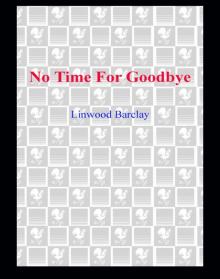 No Time for Goodbye
No Time for Goodbye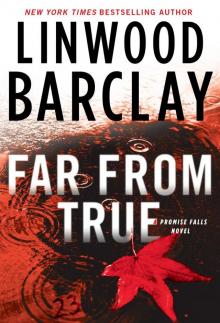 Far From True
Far From True Lone Wolf
Lone Wolf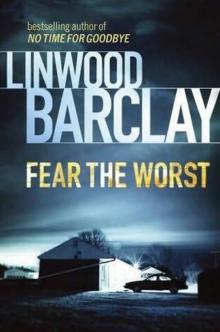 Fear the Worst
Fear the Worst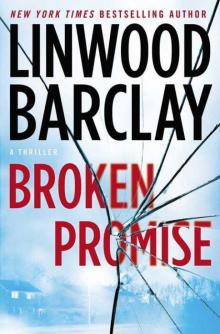 Broken Promise
Broken Promise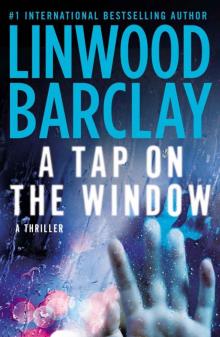 A Tap on the Window
A Tap on the Window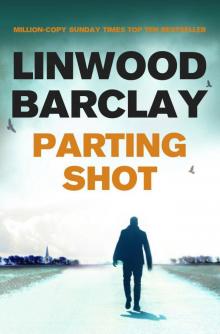 Parting Shot
Parting Shot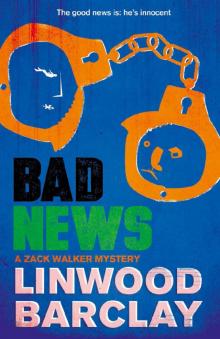 Bad News
Bad News Too Close to Home
Too Close to Home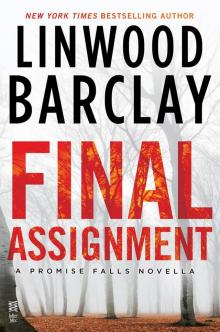 Final Assignment
Final Assignment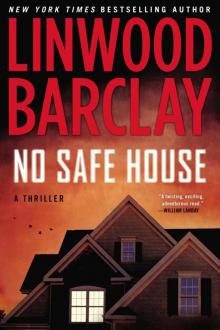 No Safe House
No Safe House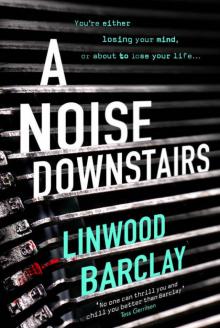 A Noise Downstairs
A Noise Downstairs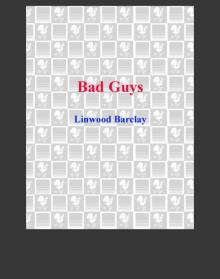 Bad Guys
Bad Guys The Accident
The Accident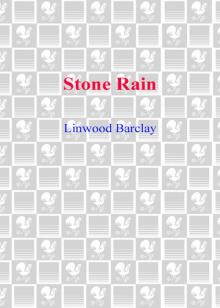 Stone Rain
Stone Rain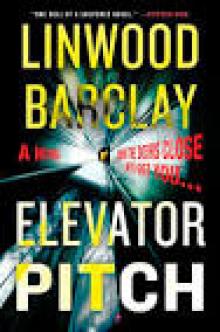 Elevator Pitch
Elevator Pitch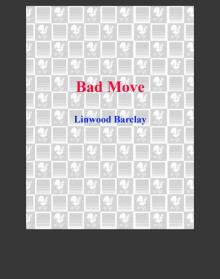 Bad Move
Bad Move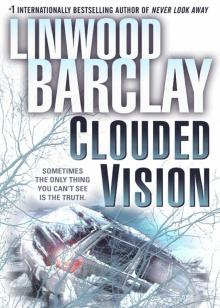 Clouded Vision
Clouded Vision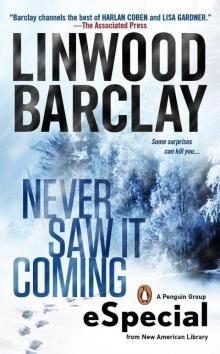 Never Saw It Coming
Never Saw It Coming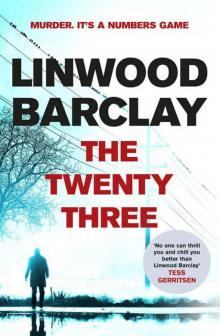 The Twenty-Three
The Twenty-Three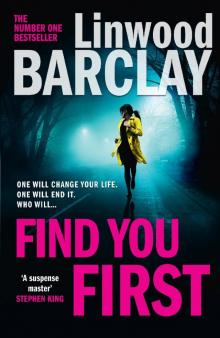 Find You First
Find You First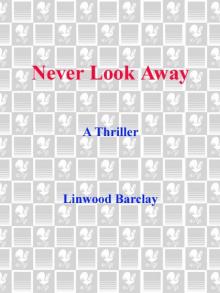 Never Look Away
Never Look Away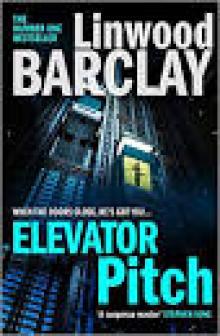 Elevator Pitch (UK)
Elevator Pitch (UK)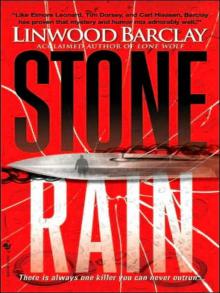 Stone Rain zw-4
Stone Rain zw-4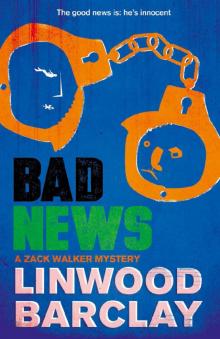 Bad News: A Zack Walker Mystery #4
Bad News: A Zack Walker Mystery #4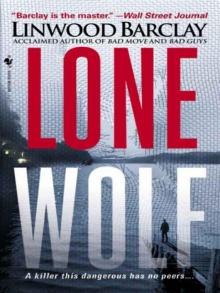 Lone Wolf zw-3
Lone Wolf zw-3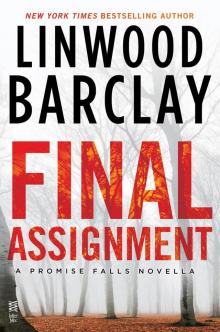 Final Assignment: A Promise Falls Novella
Final Assignment: A Promise Falls Novella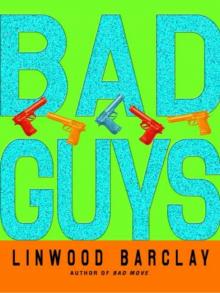 Bad Guys zw-2
Bad Guys zw-2 Never Saw It Coming: (An eSpecial from New American Library)
Never Saw It Coming: (An eSpecial from New American Library)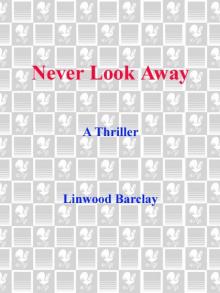 Never Look Away: A Thriller
Never Look Away: A Thriller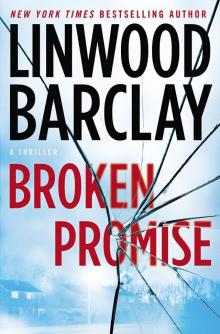 Broken Promise: A Thriller
Broken Promise: A Thriller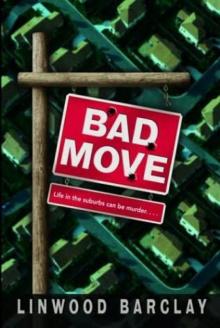 Bad Move zw-1
Bad Move zw-1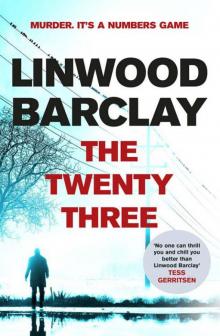 The Twenty-Three 3 (Promise Falls)
The Twenty-Three 3 (Promise Falls)